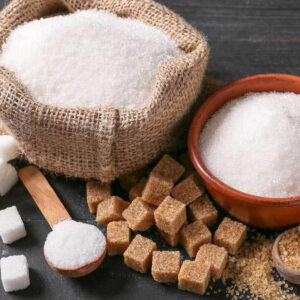An Extensive Take A Look At the Advantages and Uses of Beet Sugar Vs Cane Sugar for Sweetening Options
In the realm of sweetening, both beet sugar and cane sugar deal distinctive advantages and cooking functions, albeit with similar nutritional profiles. While beet sugar boasts a neutral flavor perfect for different recipes, cane sugar enriches meals with refined caramel undertones.
Beginnings and Handling Methods of Beet Sugar and Cane Sugar
Beet sugar and cane sugar, two primary sugar, stem from really distinct plants and undergo various handling methods. Beet sugar is drawn out from the sugar beet, a root vegetable, primarily grown in cooler environments.
Conversely, cane sugar originates from the sugarcane plant, a tropical turf. Its handling begins with harvesting the cane, squashing it to get the juice, and after that steaming this liquid to form sugar crystals. The continuing to be molasses-rich fluid can be re-boiled several times to generate varying grades of sugar. This process, although rather comparable in its objective, differs substantially in regards to the environmental conditions needed for farming and the initial steps in removing sugar. beet sugar vs cane sugar. Each technique reflects adaptations to the corresponding plant's all-natural habitats and residential properties.
Nutritional Contrast: Beet Sugar Versus Cane Sugar

When comparing the dietary web content of beet sugar and cane sugar, it comes to be evident that both types offer a similar energy worth. Each provides about 4 calories per gram, mainly as sucrose, which is a straightforward carbohydrate. This resemblance includes their absence of necessary nutrients; neither sort of sugar has significant amounts of vitamins or minerals. Both beet and cane sugar are 99.9% pure sucrose, making them basically similar in terms of calorie web content and dietary account.
However, mild differences might occur from the very little trace elements that continue to be after processing, though these are as well minor to influence overall health. For instance, cane sugar can preserve traces of molasses, depending upon the degree of refining, which might add tiny quantities of calcium, iron, and potassium. Beet sugar, on the other hand, usually undergoes a process that removes these trace elements much more completely, leading to an even purer form of sucrose.
Culinary Uses and Flavor Profiles
Regardless of their dietary resemblances, beet sugar and cane sugar split significantly in their culinary applications and flavor nuances. Beet sugar, acquired from sugar beetroots, commonly has a really neutral preference, making it a favored choice in baking where it seamlessly incorporates without changing the flavor account of various other components. beet sugar vs cane sugar. It dissolves rapidly, which is useful in drinks and fine desserts. On the various other hand, cane sugar, sourced from the sugarcane plant, usually lugs subtle hints of molasses, also in its refined kind. This can include a warm, caramel-like touch to meals, improving recipes like cookies, cakes, and sauces where a richer taste is desirable.
Cooks and home chefs alike pick sugars based upon these qualities. While both sugars work similarly in terms of sweet taste visit homepage and physical residential properties, the mild flavor distinction can affect the outcome of a dish significantly, guiding the selection in between beet and cane sugar based upon the wanted end outcome in culinary developments.
Health Effects of Consuming Beet and Cane Sugars
Although beet sugar and cane sugar are frequently used reciprocally in cooking and baking, their wellness implications can differ discreetly due to their unique handling methods. Both sugars provide regarding the very same amount of calories and carbohydrates per tsp, basically offering similar energy payments without any intrinsic nutritional advantages. The refining procedure for each sugar can modify the visibility of trace minerals and compounds, although these variations are usually marginal more and not substantial sufficient to impact one's health and wellness meaningfully.
The key wellness worry about both sorts of sugar relate to their contribution to extreme calorie intake, potentially resulting in weight gain, and connected illness like kind 2 diabetic issues and heart problem when consumed in big amounts. Regardless of the source, moderation is vital in eating beet or cane sugars. Health professionals often recommend restricting included sugars in any type of form to maintain optimum wellness results.
Environmental Influence and Sustainability of Sugar Production

Conversely, sugar beet handling tends to produce huge amounts of pulp waste, which can be repurposed as pet feed or transformed into bioenergy, therefore alleviating some environmental influences (beet sugar vs cane sugar). Ultimately, linked here the sustainability of sugar manufacturing rests on adopting more eco-friendly farming methods and waste monitoring practices to decrease the eco-friendly impact of both sugar types

Verdict
To conclude, both beet and cane sugars offer beneficial sweetening choices, each with distinctive advantages and drawbacks. While they are nutritionally comparable, their cultivation effects and flavor profiles vary substantially. Beet sugar is notable for its sustainability and neutral taste, whereas cane sugar is treasured for its rich taste. Consumers must consider these elements, in addition to the environmental effects of sugar production, to make educated selections regarding sugar intake that align with culinary demands and ethical values.